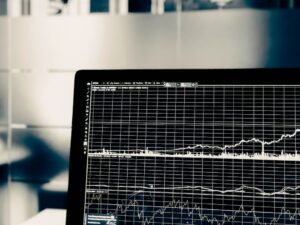The Role of Technology in Forex Stock Exchange: Advancements and Trends
The foreign exchange (forex) market is the largest and most liquid financial market in the world. It operates 24 hours a day, five days a week, with trillions of dollars traded daily. In such a fast-paced and dynamic environment, technology plays a crucial role in enabling efficient trading and staying ahead of the competition. In recent years, advancements in technology have revolutionized the forex market, reshaping the way traders operate and opening up new opportunities. This article explores the role of technology in the forex stock exchange, highlighting the advancements and trends that are shaping the industry.
One of the most significant advancements in technology that has transformed the forex market is the rise of online trading platforms. These platforms have made trading accessible to a broader audience, eliminating the need for physical trading floors and enabling traders to operate from anywhere with an internet connection. Online trading platforms provide real-time market data, charting tools, and advanced order execution capabilities, empowering traders to make informed decisions and execute trades quickly.
Furthermore, the development of mobile trading applications has further enhanced accessibility to the forex market. Traders can now monitor their trades, analyze market trends, and execute orders on the go, using their smartphones or tablets. Mobile trading apps have revolutionized the way traders interact with the market, enabling them to seize opportunities and manage their portfolios in real-time, regardless of their location.
In addition to online trading platforms and mobile apps, algorithmic trading, also known as automated trading or black-box trading, has gained significant popularity in the forex market. Algorithmic trading involves using computer programs or algorithms to automate trading decisions and execute trades at high speeds. These algorithms analyze vast amounts of market data, identify patterns, and execute trades based on predefined rules and parameters. Algorithmic trading has revolutionized the forex market by increasing trading efficiency, reducing human error, and enabling the execution of trades at lightning-fast speeds.
Another significant technological advancement that is shaping the forex market is the use of artificial intelligence (AI) and machine learning. AI-powered trading systems can analyze massive amounts of data, including historical price patterns, economic indicators, news sentiment, and social media trends, to generate trading signals and make predictions about market movements. Machine learning algorithms can adapt and improve over time, continuously learning from new data to enhance their trading strategies. AI and machine learning have the potential to revolutionize forex trading by providing traders with valuable insights and improving their decision-making processes.
Moreover, the forex market has witnessed a surge in the use of big data analytics. Big data refers to the vast amount of structured and unstructured data generated from various sources, such as social media, news articles, economic reports, and market data. By analyzing big data, traders can identify market trends, sentiment, and correlations that can inform their trading decisions. Big data analytics can also help traders mitigate risks by identifying potential market disruptions and providing early warning signals. The ability to process and analyze big data has become a competitive advantage for traders, enabling them to gain unique insights and make more informed trading decisions.
Furthermore, blockchain technology, the underlying technology behind cryptocurrencies like Bitcoin, has the potential to revolutionize the forex market by providing transparency, security, and efficiency. Blockchain enables the secure and decentralized recording of transactions, eliminating the need for intermediaries and reducing transaction costs. By leveraging blockchain technology, forex transactions can become more transparent, secure, and efficient, benefiting traders, brokers, and financial institutions alike.
In conclusion, technology has played a transformative role in the forex stock exchange, enabling traders to operate more efficiently, access the market from anywhere, and make informed trading decisions. Advancements such as online trading platforms, mobile trading apps, algorithmic trading, AI and machine learning, big data analytics, and blockchain technology have reshaped the forex market and opened up new opportunities. As technology continues to advance, it is crucial for traders to embrace these advancements and stay ahead of the curve to thrive in the ever-evolving forex market.





